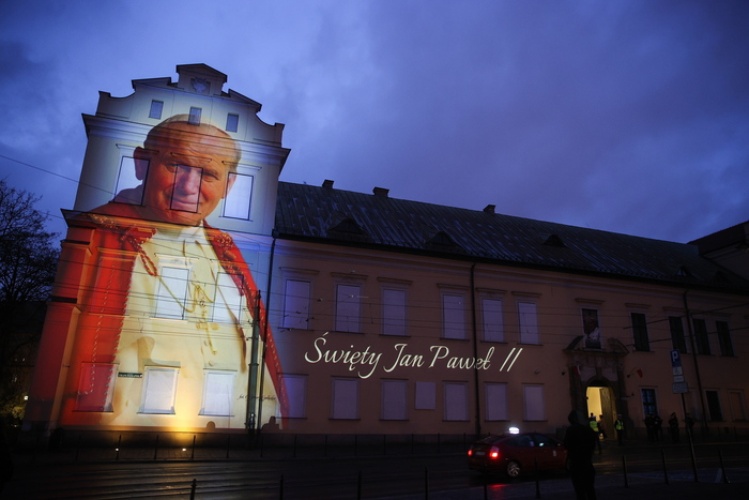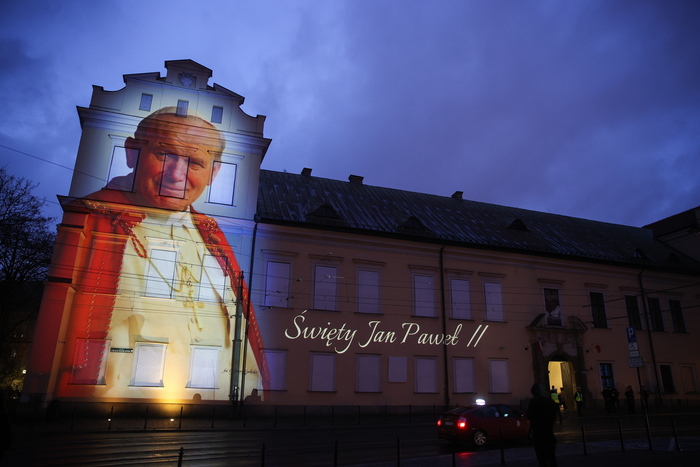The brother of Emanuela Orlandi, a 15-year-old Vatican City resident who disappeared in 1983, aimed "offensive and unfounded innuendo" at the much loved and venerated Saint John Paul II in an interview on La7 television this week, in which he talked of the late Polish pope going out at night with senior clergymen ‘looking for girls’.
“Certain of interpreting the sentiments of the faithful throughout the world, I address a grateful thought to the memory of St John Paul II, in these days the object of offensive and unfounded insinuations”, Francis said at the Regina Coeli blessing.
The Pope was loudly applauded by the faithful gathered in St Peter's Square for the message that at this time of the Church year replaces the usual Sunday angelus blessing.
Vatican daily L'Osservatore Romano on Friday blasted the allegations by Pietro Orlandi against the late pope who died in 2005 and became a saint in 2014.
Orlandi met Vatican prosecutor Alessandro Diddi on Tuesday to talk about his sister's case.
“Evidence? None. Clues? Even less. Third- or second-hand testimony? Not even a shadow. Just anonymous, shameful accusations,” read the editorial on the “supposed revelations about Pope Wojtyla and the Orlandi case”.
“It's madness. And we don't say so because Karol Wojtyła is a saint or because he was pope.
“Although this media massacre causes sadness and shock, injuring the hearts of millions of believers and non-believers, defamation must be denounced because it is unworthy of a civilised country for anyone to be treated in this way, dead or alive, whether they be a cleric or a layperson, a pope, a metal worker or a young unemployed person.”
The editorial said it was right to investigate Emanuela Orlandi's disappearance, but this did not justify slander.
Earlier on Friday, Orlandi's lawyer Laura Sgro’ said her client had not intended to "formulate accusations against anyone.
“He reiterated that to the prosecutor, and he wrote it in the deposition he presented during his testimony,” Sgro' said, who on Saturday refused to name names in a meeting with Diddi, the Vatican prosecutor.
“He only asked that the quest for the truth should not be conditioned in any way.
“He is sorry that some people have misinterpreted his statements by manipulating some things extrapolated from them.”
Emanuela Orlandi disappeared while returning home from a flute lesson in Rome on June 22, 1983.
The girl's disappearance sparked an intense media frenzy in Italy that has resulted in the case being called “Italy's most famous unsolved mystery”.
She was the fourth of five children of Ercole and Maria Orlandi.
Her father was a Vatican employee and the family lived inside Vatican City.
Her story inspired a hit four-part 2022 Netflix series called Vatican Girl: The Disappearance of Emanuela Orlandi.
Speculation on Orlandi’s disappearance, and that of another 15-year-old girl, Mirella Gregori, in the same summer of 1983, has been rife over the years.
In late November 2018, Rome prosecutors said bones found in an annex to the Vatican’s nunciature to Italy did not belong to either Orlandi or Gregori .
The Orlandi case has spawned several theories over the years, including that she was murdered to gain traction to have pope John Paul II's Turkish shooter Mehmet Ali Agca freed, or that organised crime was involved.
Ali Agca was questioned in the case.
In 2016 investigations into the case were shelved.
Six people including a priest were implicated in the investigations on suspicion of complicity in abduction and murder.
All but one had links with the Banda della Magliana, a now-defunct crime gang based in Rome.
In September 2018 the Vatican described as “false and ridiculous” reports that the Vatican had spent large amounts of money on the case.
ANSA











